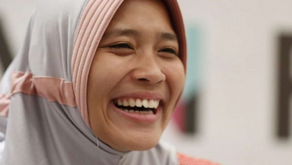Iran Diary: Stabbed, slit, stoned, murdered by men of their house
- realshepower

- Jun 1, 2020
- 4 min read
Updated: Aug 28, 2020
I used a book called "Silent Disaster" ( honor killing) to write about what happened to Romina and other girls in Iran. This book, written ten years ago, reported many cases of honor killing.
I found the preface of this book horrifying.
Sheyda, was a 16 years old Iranian woman stabbed several times by his brother while she was talking to a man. She had a two year old child and an abusive husband. The man killed his wife in front of his child. Saeede, the 14 year old girl from Balochistan of Iran, was stoned and murdered by her father, brother, and brother’s friend as they had suspicion of her mingling/talking with boys. It was announced by Negin Sheikh Al Islami woman rights activist from Kurdistan of Iran that in the first half of 1999, 15 honor killings happened in Kurdistan.
Delbar Khosravi, a 17 years old girl from a village near Marivan city (a city in Kurdistan) was beheaded by his father because she wanted to get divorced from her husband she was forced to marry. A 46 years old man injured his 15 years old temporary wife ( temporary marriage is a kind of marriage in Islam) by stabbing. He also killed a man who was talking to his wife on the street. Branch 17 of the criminal court of Tehran province considered the killing of the man as deserving of death but only sentenced the murderer to pay money. Leila from Lorestan was set ablaze by her brother and cousin as she refused to marry her cousin and escaped with a man she was interested in. In Dezfool city of Iran, a man called Jasem with three wives beheaded his 15 years old daughter. This unspeakable crime was committed by her father because he thought that the girl was raped by her uncle.
Another man in Dezfool beheaded his second wife and his seven years old son. The reason being the man imagined the wife betrayed him, and the son was from another man. In Torbate Jam of Iran, a man with the assistance of his brother and his cousin killed his younger sister and buried her in a ruined well. After one month, he went to the police and confessed that the reason behind this murder was the family’s dignity. In Saghez of Iran, Sheno Farhadi was killed by his brother because she declined forced marriage. Fereshte Nejati, 18 years younger than her husband, came back to his father's home to divorce. But she was beheaded by his father based on the wrongful conviction of relationship by another man. Eleven years ago, some civil societies and human rights organizations composed of women condemned the killing of Shahin Nasrollahi, killed by her brother in Dezli village. There are more incidences of honor killing in the preface of the book, which I did not mention here.
Honor and jealousy or zeal ( justifications for honor killings)
There are some words in Persian that I do not know the equivalent for them in English. I translated one of this word called Gheirat in Farsi as jealousy. Some bigoted men do not consider their wives, daughters, and sisters as independent and free human beings but they definitely do consider themselves entitled of all these freedoms. The word honor or Naamoos is defined as masculinity, moral distinction, or preeminence. As these words in Iranian culture has always had a direct relationship with women, the word honor is defined as a worship of Naamoosor entitlement over women. Namoosare women of a family dependent on men. So men always must take care of Naamoos or women of their families based on their inference from the words jealousy and honor.
There are no exact figures for the honor killings in Iran.it is almost impossible to access families who experienced these murders. A police official announced that more than 40% of honor killings happened in the Khuzestan city. 75% of people who disappeared in Khuzestan were women and girls who escaped from home. Chief justice of Khuzestan said in this regard that some people think, “if they kill, other people will not be punished, and judges cannot impose severe penalties on them because there are no complaints about them.”
Study of the reasons of honor killing in Iran
Ethnicity and discrimination
People who belong to ethnic minorities believes that being in the minority means tolerant to discrimination, and these cultural, economic, social, and political discriminations have convinced them to be united in their isolation and defend their wrong and right traditions, emphasized on them to keep their ethnic and religious identity. They even have monetary funds to help members of their community when there is a fight or murder, but in return, members of the community must obey the norms and rules of their tribe. They do not want to be open minded and leave wrong and obsolete beliefs behind. The tribal system has harsh and exhausting expectations from its members. And due to the lack of strong ties with society and the national culture, the separation of the individual from the tribe and ethnic group can be considered as an irreversible catastrophe for any member. Hiding honor killings or female self-immolation raises many questions, but a lengthy interview with various people living in places with high rates of honor killing showed that they think the interviewer to be a stranger who intends to humiliate and ridicule them, so there was anxiety in their faces at the beginning of the interview. When they were told that this problem did not exist only in your province or tribe, but also in different parts of the country and even in other countries, they gradually agreed to talk.
Distrust
The long-term effects of segregation and suspicion have led to a suspicious view of any thought other than intra-ethnic thought. This section of society, due to extreme ethnicism, rejects the rationality and knowledge of different cultures. They do not welcome human knowledge and innovations, especially in the social sciences, and they look at every new thing as suspicious factors that must be resisted. Otherwise, you will endanger and insult your originality and identity.
Bigotry, violence, forced marriage, intense social pressure, and control are other reasons for honor killing, which can be further discussed.

About the Author: Mahtab is an Iranian Social activist determined to bring a change in society. She is a strong voice for women in Iran.

























Comments